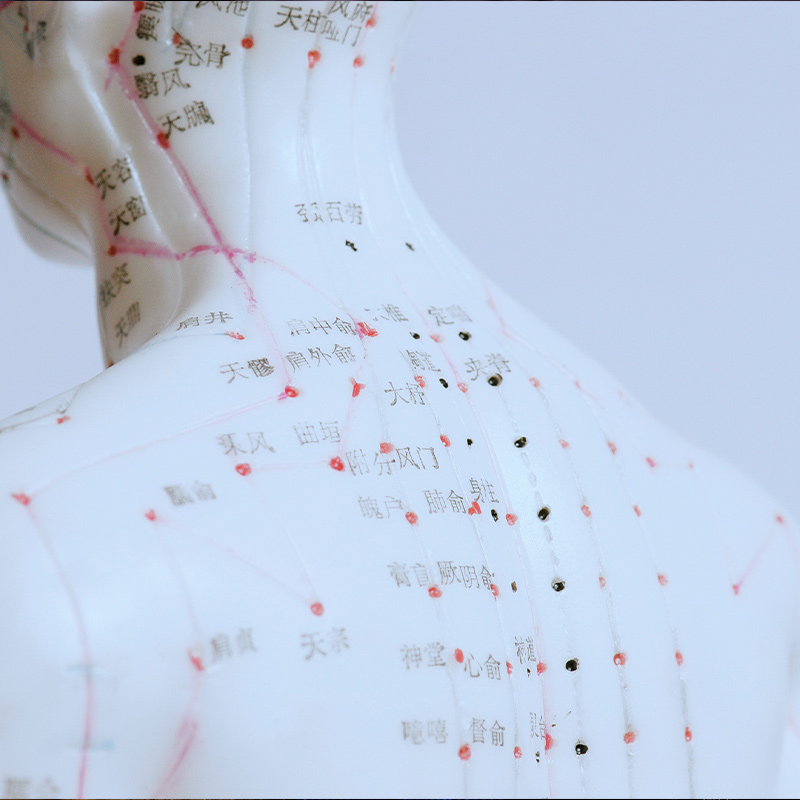Acupuncture Program
The nine-trimester (three-year) 141-credit program in Acupuncture prepares students for licensure in and professional practice of acupuncture. The program contains three strands of courses–TCM, Acupuncture, and Western Biomedical Sciences–each of which consists of an ordered progression of material:

The TCM Strand
The TCM strand begins with the basic theories of Chinese physiology based on Yin and Yang and the five elements, and progresses in a stepwise fashion through Pathogenesis, Diagnosis, Syndrome Analysis, Treatment Principles, and Clinical Acupuncture Practice. Each successive course builds on the information presented in prior courses until a grand synthesis is reached in the Clinical Acupuncture Practice series.
The Acupuncture Strand
The Acupuncture strand deals more with the practical aspects of this branch of TCM. It begins with a three-course series on Meridians and Point Location, moves on to Needle Technique, and culminates in Acupuncture Case Analysis, which is the more practical counterpart to Clinical Acupuncture Practice.
The Western Biomedical Science Strand
The Western Biomedical Science strand consists of Medical Terminology, Muculo-skeletal & Palpatory Anatomy, Western Physiology, Clinical Pathophysiology, Western Diagnosis, Musculo-Skeletal Evaluation, Clinical Neurology, Pharmacology, Clinical Nutrition, and Western Case Analysis series. Before formally entering the program, students are required to complete nine credits of bioscience prerequisites, consisting of courses in Human Biology, Topical Anatomy, and Chemistry for Health Sciences. The purpose of this strand is to familiarize the student with Western medical practice to the extent that he or she can effectively communicate with patients and with Western health care providers, and can identify conditions which require referral to Western physicians.
Additional Courses on Energy Work, Massage, Eastern Nutrition, Herbology, Professional Ethics and Practice Issues
In addition to these three strands, additional courses on energy work (Tai Chi and Qi Gong), History and Philosophy of Chinese Medicine, Chinese Classics (Nei Jing), Tui Na (Chinese massage), Eastern Nutrition, Herbology (Intro. to Chinese Herbology and Patent Herbs), Clinical Counseling, Professional Ethics, Practice Issues and Clinical Safety Management are required, along with four credits of elective courses.
For a complete list of didactic courses in the Acupuncture program, please click here for the roadmap.
Clinical Training in the Acupuncture Program
The clinical aspect of the acupuncture program consists of four phases:
1. Observation (4 credits/120 hours)
In this phase the student observes the acupuncturists and interns in all aspects of their practice: patient intake, questioning, checking pulse and tongue, diagnosis, treatment strategy, and needling.
2. Assistantship (2 credits/60 hours)
In this phase students begin to assist the acupuncturists in treatment procedures such as moxibustion and cupping, and can withdraw needles from the patient.
3. Junior Internship (8 credits/240 hours)
In this phase students begin to needle patients under close supervision, and perform diagnoses with guidance from the clinical instructor.
4. Senior Internship (10 credits/300 hours)
In this final phase students diagnose and treat patients with more minimal supervision.
Before entering the clinic as an Observer, students must take a class “Introduction to Clinic” in which they are introduced to clinic procedures and expectations, including patient intake, record keeping, different clinic levels and attendant responsibilities, and general rules of cleanliness and deportment.
As one of the pre-requisites to becoming an intern, students must attend a course “Introduction to Clinical Internship”, which focuses on clinical competency training for junior and senior interns.
Before beginning their Junior Internship, students must pass a Clinic Entrance Examination which tests all areas of TCM and Acupuncture studied up to that point. Also required before treating patients in the clinic is certification in Clean Needle Technique and in CPR. Before progressing to Senior Intern, students must pass a Clinical Skills Assessment Test and submit a detailed Case Report. There is also a comprehensive Graduation Examination which students are required to pass at the end of their program.
For a complete list of pre-requisites for clinical training, please click here for the Clinic Manual
As an adjunct to the clinical training component of the program, each year students must attend two Grand Rounds conducted by NYCTCM faculty. During these sessions, faculty present interesting or difficult cases and demonstrate appropriate treatment techniques.
